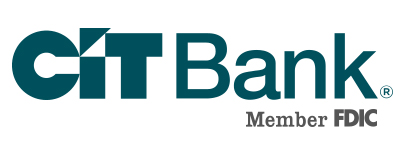Pros:
- Free checking account for teens
- No fees for any accounts
- Interest earning account for kids
- High-interest rate on money market
Cons:
- Large amount required for highest rates
- Must link savings to checking account
- Teen accounts do not offer checks
- No ATM fee refunds
Pros:
- Low opening required amounts
- Variety of accounts available
- ATM fee reimbursements
- Competitive rates on most accounts
Cons:
- Must become a member first
- Accounts have tiered interest rates
- Daily cash limits on withdrawals
The checking account for teens does not have any fees. The parent can receive text alerts when their account balance is running low. This checking account earns interest. No minimum amount required to open the account or to keep in the account.
There are no fees for any Capital One 360 accounts. There is no minimum required amount to open any of their accounts, or required to stay in the accounts. Capital One 360 accounts are free.
The Capital One 360 savings account for kids pays interest on any amount in the account. There are no fees and no amount required to keep in the account. You will earn the same interest on whatever the balance is. Kids can upload checks through their mobile app. Adults must sign in and use a pin to make transfers out of the savings account.
Capital One 360 offers high-interest rates for their money market accounts. The money market account does not have any fees, and there is no required amount to keep in the account.
To earn the high-interest rates for the money market account, you must have $10,000 deposited. You will earn lower interest rates for any amount under $10,000 in the money market account. To earn the highest interest the $10,000 is necessary.
Capital One 360 savings accounts must link to a checking account when opened. You can link the account to a Capital One 360 checking account or a checking account with another bank. However, the savings account must link to a checking account.
The Capital One 360 checking account comes with a debit card and the possibility of checks. The teen MONEY checking account only comes with a debit card. The teen account does not offer checks.
Capital One 360 does not offer refunds for fees charged at ATMs other than their own. If you use a non-Capital One ATM, you will be charged a fee. Capital One has over 39,000 ATMs across the U.S. Find a Capital One ATM on their website.
Navy Federal accounts have low opening required amounts. The savings account only requires $5 to open. The money market account does not have a set amount required to open, but to earn interest requires $2,500. The checking accounts do not have a set amount required to open. The CDs have tiered opening required amounts. The lowest amount to open a regular CD is $1,000. Special CD offers require lower opening amounts.
There are a wide variety of accounts offered through Navy Federal. They offer a savings account, money market account, and CDs. Their CD terms range from three-month terms to seven-year terms. Navy Federal offers five checking accounts. Those accounts include one for students, an online account, and an active duty account. Navy Federal also offers loans and credit cards.
Most Navy Federal checking accounts offer ATM fee reimbursement. Only the Everyday Checking account does not. The reimbursement amount ranges from $10 to $20, depending on the account. Some accounts require a direct deposit to earn the reimbursement.
Most all Navy Federal accounts offer competitive interest rates. The CDs offer the most competitive interest rates. Navy Federal savings and checking accounts earn interest. The rates are lower than online account rates. The money market account rates are slightly lower than online rates. These rates are higher than typical bank rates.
Before you open an account with Navy Federal, you must first become a member of the credit union. Servicemembers and veterans are eligible to join Navy Federal. Department of Defense employees are eligible. Family members of each of these groups can become members of Navy Federal Credit Union.
Navy Federal money market and Flagship checking account have tiered interest rates. To earn the most competitive rate on the MMA requires a balance of at least $50,000. The checking account requires $25,000. To earn the most competitive rate on Navy Federal CDs requires $100,000.
Navy Federal only allows for a daily cash withdrawal of $600. This includes cash from an ATM, a branch, or receiving cash back. There is a daily transaction limit of $3,000 for most checking accounts and $5,000 for the Flagship checking. Their accounts do not typically have limits on the number of transactions.


